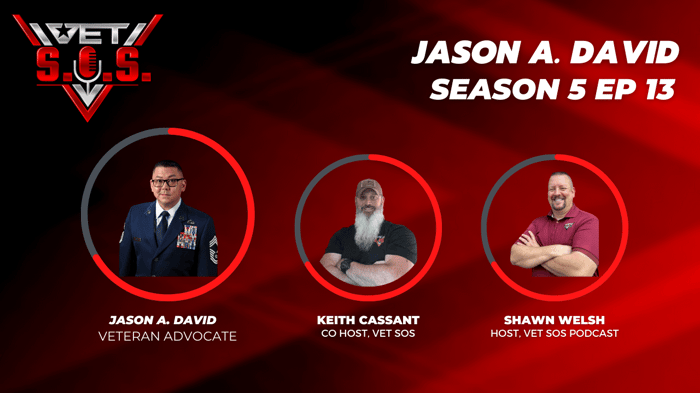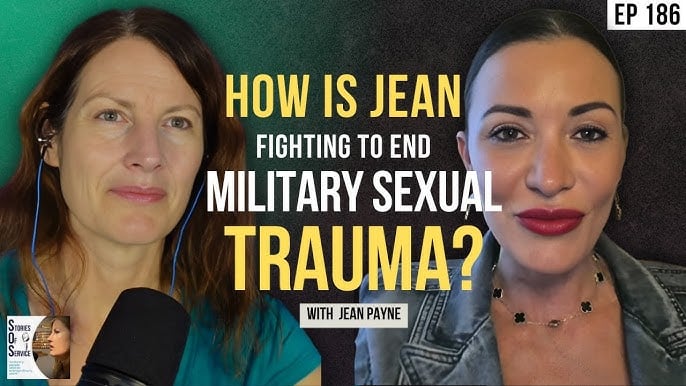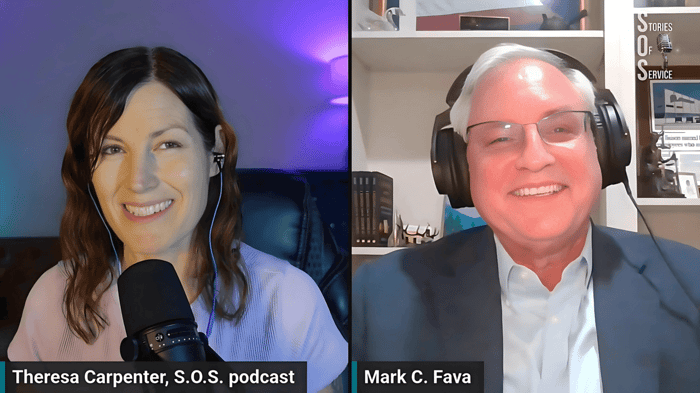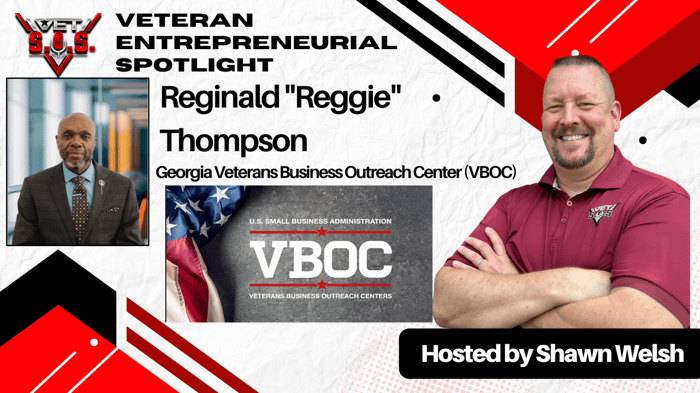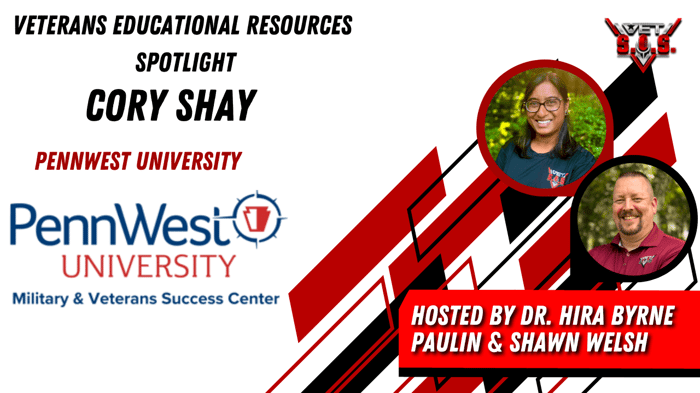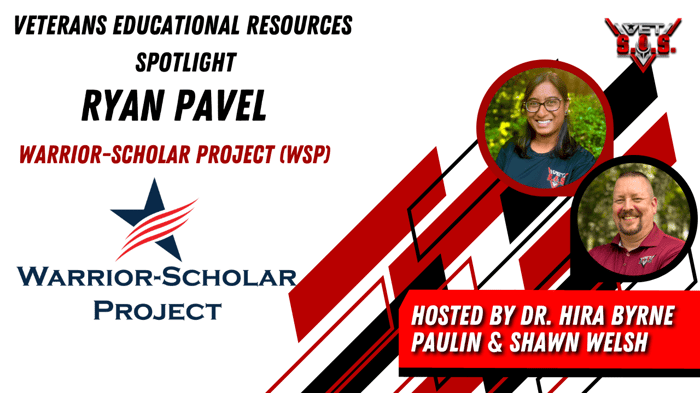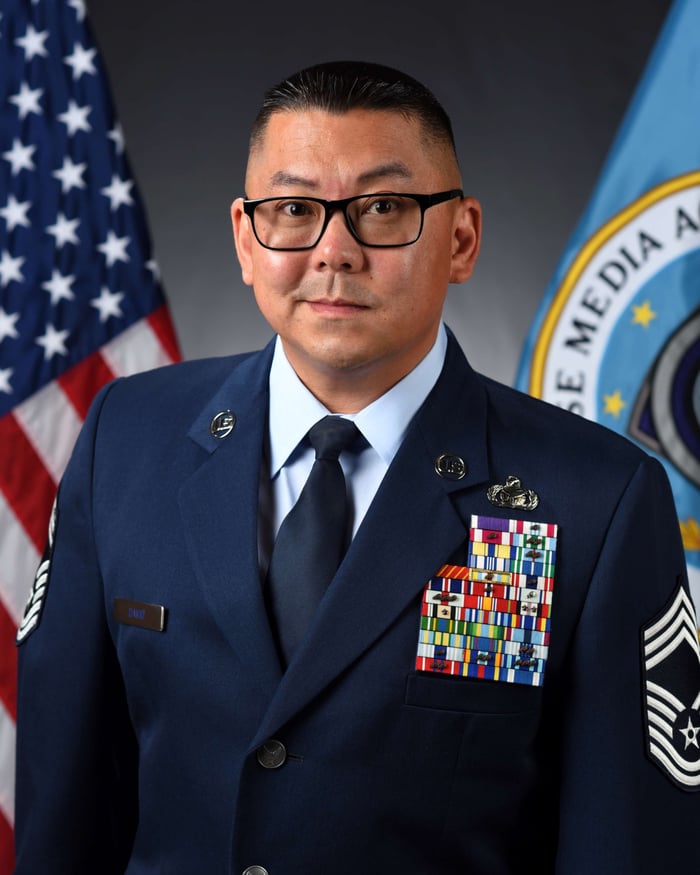 The process of military transition is one of the most significant journeys a service member will ever face. Leaving behind the structure, mission, and camaraderie of military life can be both liberating and overwhelming. From navigating the VA system to finding meaningful civilian employment, every transition story is unique—yet many share common challenges.
The process of military transition is one of the most significant journeys a service member will ever face. Leaving behind the structure, mission, and camaraderie of military life can be both liberating and overwhelming. From navigating the VA system to finding meaningful civilian employment, every transition story is unique—yet many share common challenges.
In this episode of the VET S.O.S. podcast, we talk with Chief Master Sergeant (Ret.) Jason A. David, a decorated veteran, Purple Heart recipient, and dynamic veteran advocate who has made it his mission to support others through their own military transition. Drawing from personal experience and his extensive work with veteran-focused organizations, Jason shares key strategies and resources every service member should know before, during, and after their transition from the military.
Why Military Transition Is So Challenging
Jason doesn’t sugarcoat the reality of military transition. “It’s a turbulent journey,” he admits, describing the year following his retirement as one of the most intense periods of his life. But he also emphasizes that preparation, purpose, and people—especially a strong network—can ease that transition considerably.
Many veterans underestimate how much of their identity is tied to their uniform. Once that’s gone, figuring out “Chapter Two” can be daunting. Jason's message is clear: “You have to start early, build relationships, and plan like your future depends on it—because it does.”
Networking: The Most Underrated Tool in Military Transition
One of the pillars of Jason's successful military transition was networking, especially through LinkedIn. Unlike many who treat LinkedIn as a digital Rolodex, Jason focused on building real relationships—engaging in conversations, offering value, and learning from others.
By doing this long before his official transition, he not only expanded his professional network but created a support system that helped guide him into civilian employment. His content now reaches hundreds of thousands, focused on topics like VA benefits, career prep, and government programs for veterans.
“Networking isn’t just about getting a job,” Jason says. “It’s about finding your tribe after the uniform comes off.”
Unlocking Hidden Benefits: The UCX Program
One of the most impactful parts of Jason’s message revolves around UCX (Unemployment Compensation for Ex-Service Members)—a little-known benefit that can make a big difference for veterans in transition. Funded by FICA taxes taken from your military paycheck, UCX is available in all 50 states and can provide higher-than-average unemployment payouts for eligible veterans.
Some states even allow retroactive UCX claims, meaning veterans who were unemployed in the past may still qualify for back pay if they were unaware of the benefit.
This information, shared in one of Jason’s LinkedIn posts, went viral—proving just how few service members know about this valuable resource during their military transition.
VR&E: Creating a Career-Focused Transition Plan
Another underutilized resource Jason champions is Veteran Readiness & Employment (VR&E). This powerful program supports veterans with service-connected disabilities in building long-term career plans.
Unlike the GI Bill, VR&E is goal-oriented and can cover everything from college degrees to certification courses and technical training. Best of all, it comes with a monthly housing stipend similar to the GI Bill—but without a set expiration date.
“With VR&E, you’re not just getting educated—you’re building your future,” Jason notes.
For veterans unsure of their post-military path, VR&E offers the opportunity to train for jobs that align with both personal interests and market demand. It’s a game-changer for anyone going through a military transition with the goal of entering a new industry.
Rebuilding Through Adaptive Sports and Community
Jason is also deeply involved in adaptive sports programs like PGA HOPE, Salute Military Golf Association, and Move United. After enduring multiple surgeries and living with titanium replacements throughout his body, Jason found healing—and purpose—on the golf course.
These organizations don’t just offer recreation; they provide community, resilience-building, and rehabilitation through sports. Whether you’re recovering from visible injuries or invisible wounds, these programs can be a lifeline during your military transition.
“Your body may be different, but that doesn’t mean you have to stop living. Adaptive sports gave me back my mobility—and my confidence.”
Resume Building & AI Tools for Job Seekers
One of the biggest hurdles in the military transition journey is translating military experience into civilian language. Jason highlights the need for veterans to “humanize” their resumes—moving away from acronyms and rank-centric jargon to results-based language that hiring managers can understand.
He recommends tools like Abe.work, a free AI-powered platform that helps veterans convert their NCOERs, EPRs, and FitReps into resume content. Similarly, the Battle Buddy AI bot from VetSec is a new resource aimed at helping transitioning service members break into fields like cybersecurity through career guidance and technical prep.
Educational Access and Certification Shortcuts
Jason also emphasizes the importance of using available education resources during and after your transition. Tools like:
CLEP exams – to earn college credit faster
EBSCO through DODLibraries.mil – to access study guides and test prep
On-base education centers – to get personalized support
Education is often a critical step during military transition, especially for those pivoting into industries like IT, healthcare, business, or project management.
Even certifications you earn while still in uniform—such as PMP, CompTIA, or Six Sigma—can set the stage for success post-service. Jason advises starting early and getting as much as possible under your belt before your last day in uniform.
Mindset Matters: Don't Be Afraid to Ask for Help
Perhaps the most heartfelt takeaway from this episode is Jason’s call for veterans to shed the stigma of asking for help. Too many leave benefits on the table or suffer in silence due to pride, guilt, or misinformation.
“You’re not weak for asking for help,” Jason insists. “You’re strong enough to build a better life—not just for yourself, but for your family.”
During military transition, the biggest barrier is often internal. Shifting from a culture of self-reliance to one of community support takes courage—but it’s also where growth happens.
Final Advice for Veterans in Transition
Jason closes the conversation with advice every service member should hear:
Identify your short-term and long-term targets—what he calls your 50-, 100-, and 250-meter goals.
Plan backwards from your vision. If you want to be in cybersecurity, for example, map out the certifications, connections, and experience you need—and start now.
Don’t be discouraged by delays or detours. Just keep walking toward your goal and engage others along the way.
Whether you’re six months from ETS or already out for a year, it’s never too late to take control of your military transition and build a life that fulfills you.
Conclusion: Military Transition Is a Lifelong Journey
There’s no straight line in military transition. It’s a path filled with ups, downs, unexpected opportunities, and growth. But with mentors like Jason David, a strong support system, and the right tools, veterans can thrive—not just survive—in life after the military.
To explore more resources and listen to the full conversation, visit:
🎧 VET S.O.S. Podcast: https://open.spotify.com/show/3PXqxzptNSgBuSXpgDpDPM
🛟 Don’t drown in a sea of transition—grab the VET S.O.S. lifeline.
